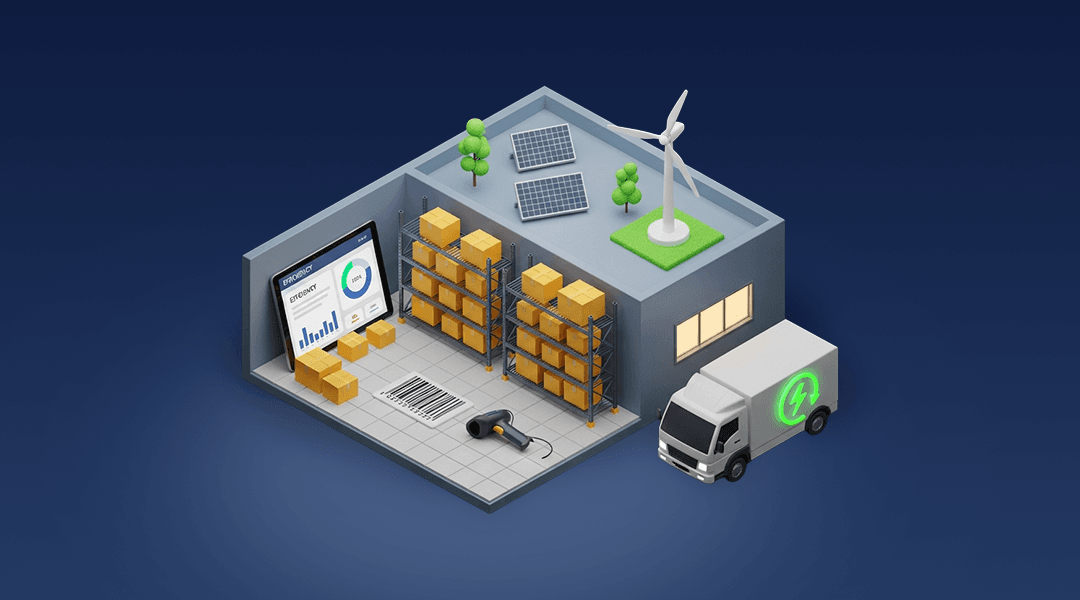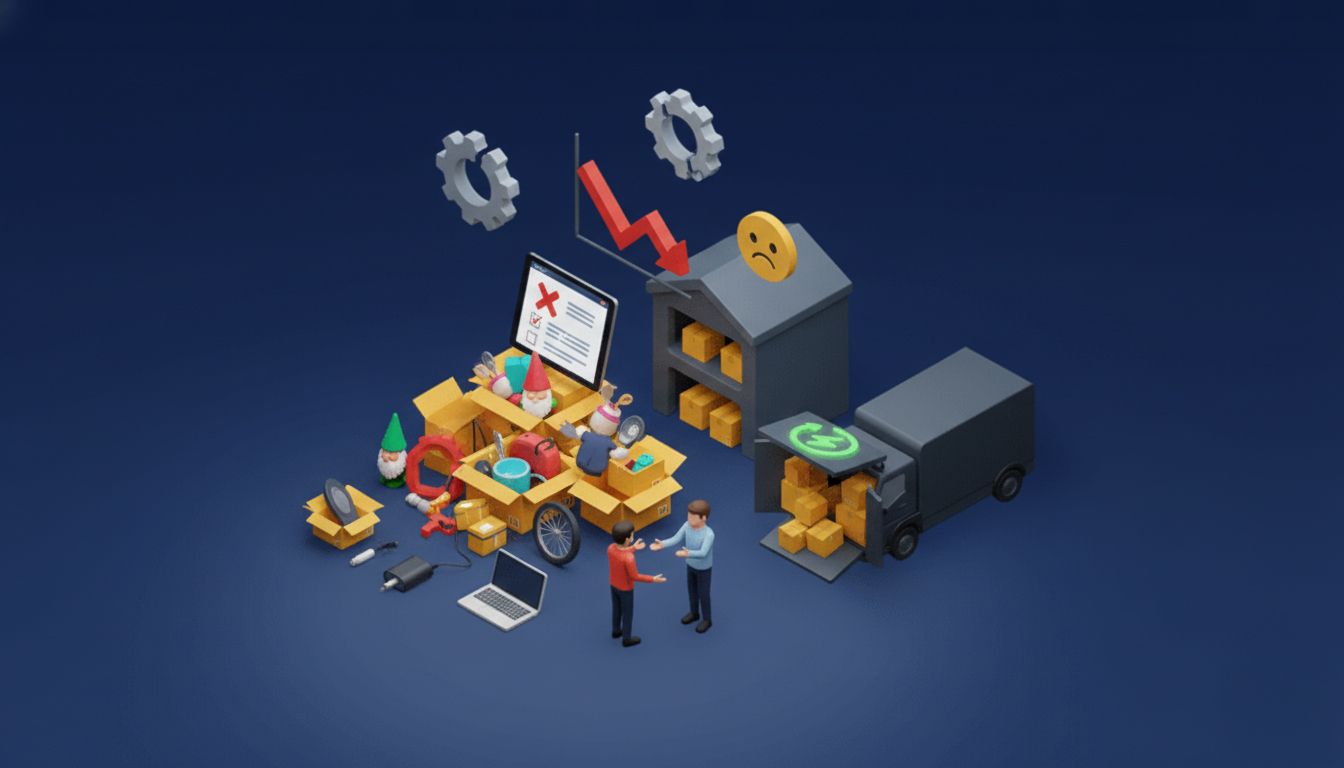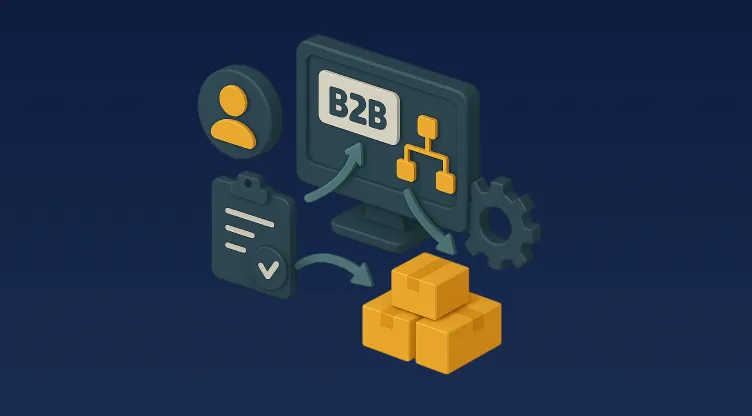Complete Guide to Transport Management Systems for 2025

Table of Contents
Did you know that using a TMS can help businesses save 5–15% on freight costs by automatically finding better routes and carriers? And it’s no surprise—TMS is growing fast. The global market is expected to surpass $23.35 billion by 2034, growing at a CAGR of 10.3%.
In the world of e-commerce, fast and reliable delivery isn’t just nice to have—it’s a must. Whether you're a small startup or a big brand, smooth shipping keeps your business running. That’s where a Transport Management System (TMS) enters the play. It helps firms handle everything about moving goods—like picking the best carrier, planning delivery routes, and tracking shipments in real time—so things get delivered faster, easier, and cheaper.
In this guide, we'll explain what a transport management system is, why it's essential for your business, its key features, and many other topics related to the transportation management system.
An Introduction to Transport Management Systems
Transportation is a critical part of every business. Transport Management System (TMS) software is a simple tool to help companies improve transportation by planning, managing, and tracking shipments. A TMS system automates tasks that will help enhance shipment tracking, freight payment tracking, and route selection, which helps businesses save time and reduce costs.
Whether selecting the right carrier or determining the best route, a TMS system ensures everything runs smoothly. That is why many businesses today opt for online transport management system software.
How TMS Could Be Your Smartest Move
With a transport management system, your business's logistics and efficiency can skyrocket in no time. Here are some of the reasons why having a TMS system is crucial for your business:
Cost Effective
Transport management system software helps businesses shortlist the best carrier options with the most efficient routes. The TMS system reduces manual human errors, ensuring better business decisions. Hence, online transport management systems are budget-friendly than on-premise TMS.
Real-Time Visibility
One of the best benefits of transport management systems is real-time tracking. It provides up-to-date information on the location and status of the shipments.
Customer satisfaction
A TMS system ensures on-time deliveries by providing accurate shipment tracking and finding the best routes. Timely deliveries keep customers happy and build trust.
Operational Efficiency
The TMS system automates freight payment and carrier selection tasks, reducing manual work. The team can then focus more on strategic tasks, improving efficiency. The TMS system is vital for businesses that want to remain competitive, reduce costs, and improve efficiency.
Key Features & Functionalities of a Transportation Management System
TMS involves several functionalities that can make transportation more manageable and more effective for companies. Let's learn some essential features of an efficient TMS system:
Carrier Selection and Management
The TMS system monitors various transportation factors, such as carrier performance, rates, etc., to choose the most affordable and reliable option. This guarantees the right decision about which carrier to choose for specific shipments.
Route Optimization
The TMS system used advanced technology to find the best route based on multiple factors, such as costs, delivery time, and traffic. Furthermore, the process will ensure that your customers receive accurate and timely deliveries, enhancing their experience.
Real-time Shipment Tracking
The transport management system software gives real-time data about the location and status of shipments, allowing the business to monitor operations closely and make changes if necessary.
Freight Payment and Auditing
Transport management system software also automates the freight payment process so businesses pay only what they owe and avoid mistakes. The TMS system's auditing feature reviews past payments for accuracy.
Analytics and Reporting
The TMS system creates detailed data on fuel usage, shipment volumes, trends in delivery times, and other logistics issues. This data benefits businesses by helping them uplift their logistics game.
Finding the Perfect TMS Fit for Your Business
Selecting a proper transport management system software for your business can positively impact the operations. Some of the things to consider when selecting a TMS system are:
Scalability
As your business grows in the future, you will require easy yet scalable transportation options. So, you need to think of the future and choose the TMS system that will help you cope with the volumes and problems of transportation in the future.
Integration Capabilities
An optimal TMS system will integrate well with any already deployed systems, such as ERP(Enterprise Resource Planning) or WMS(Warehouse Management System). Integrating such a system into your daily operations will ensure seamless data workflows between departments.
User-Friendliness
An ideal transport management system software should have a smooth interface for the team to navigate. Otherwise, it will be too complex to use and lead to errors.
Customization
An effective TMS has to be flexible enough to adapt to your needs, whether handling fluctuations in shipping or integrating with the work already being done by logistics.
What Really Happens in a TMS System?
Planning
The TMS system derives transportation plans by considering shipment data, schedules, and cost-efficiency, thus enabling businesses to determine which method would be quicker and more economical for delivering their goods.
Execution
Once the plan is complete, the TMS system will select the best carrier, ship the goods, and begin tracking the delivery process.
Route Optimization
The transport management system continuously analyzes the process and makes necessary changes if there are delays or difficulties due to traffic, or if this helps ensure delivery stays on track.
Analysis
Once the delivery is complete, TMS systems generate reports on costs, delivery times, and more. This information will be helpful for future transportation improvements.
Real TMS Benefits for Major Industries
The transport management system is handy for businesses as it simplifies the transportation process. It's helpful for every industry. Here are some industry-specific use cases:
Manufacturing
Manufacturers transport raw materials and finished goods and manage large supply chains. The TMS System streamlines these deliveries.
Retail and E-commerce
Retail and online stores can increase customer satisfaction with a TMS system. This will help them deliver faster by picking the best carriers, planning routes, and providing real-time shipment tracking.
Third-Party Logistics (3PL) Providers
Logistics providers find managing shipments more difficult because they have to handle the transportation of many clients at a time. The TMS system manages multiple shipments and carriers from a single platform to make the deliveries faster, more timely, and cost-effective.
Freight Forwarders
Transport management system software is handy for freight forwarders to keep track of shipments across different carriers and transportation methods. It gives updates and creates data on air, road, and sea transportation.
Breaking Down the Different Types of TMS Solutions

Companies and 3PLs can select from key market players offering transport management systems(TMS) services. Let's delve deep into the functionality of some of the common types of TMS systems:
On-premise TMS
Businesses must invest in hardware and software to facilitate the installation of the on-premise TMS system. It gives the company complete control and can be customized according to its needs, but it is costlier than online transport system software and requires high maintenance.
Cloud-Based TMS
This online transport management system saves money by ensuring businesses pay only for what they use. It is very easy to manage and can be accessed from anywhere.
Hybrid TMS
This transport management system offers businesses the benefits of both on-premise and online transport management system software. It gives companies control over their data, saves costs, and allows them to be accessed remotely.
Standalone TMS
A standalone TMS system manages shipments and optimizes routes for faster deliveries. It's useful for businesses that don't need extra features besides transportation management.
Integrated TMS
An integrated TMS system is helpful for inventory control, order processing, and transportation management. Hence, it is best-suited for brands looking for an all-in-one solution.
Top Benefits of Using a TMS System
There are several benefits of transport management system software, including:
Cost Savings
The TMS system saves overall costs by automating several tasks. It also saves fuel costs and delivers faster by choosing the best carriers and most efficient routes.
Increased Efficiency
The transport management system software automates many manually performed tasks, such as shipment tracking and planning the most efficient delivery routes. Thus, employees can focus on other essential functions that increase efficiency.
Enhanced Visibility
The TMS system helps businesses track shipments anytime. This avoids delays; you always know where your goods are and when they will arrive.
Regulatory Compliance
The TMS system helps automate the documentation process and ensures that the shipments meet legal requirements in different countries.
How Cloud-Based TMS Adds Greater Value to Your Logistics
The cloud-based or online transport management system software greatly benefits any business. Some of these include:
Flexibility and Scalability
The online transport management system software allows businesses to scale, whether they have small or large shipment volumes. It adjusts smoothly to the company's growing needs.
Reduced Costs
The online transport management system doesn't come with higher infrastructure costs. Businesses can subscribe to the service, paying only for what they use, making it practical for small and medium-sized enterprises.
Remote Access
You can utilize the online transport management system software from anywhere. The only thing needed is a proper internet connection. Thus, the cross-functional teams can communicate and work from different locations at their own time.
Continuous Updates
This online transport management system software automatically updates new features and security fixes, saving the team time and effort while keeping the system up to date.
The Future Trends in Transport Management Systems
Many emerging trends will be seen shaping the future of transport management systems in 2025 and beyond. Let's learn about some of these technologies:
Artificial Intelligence and Machine Learning
Eventually, AI and machine learning will allow the TMS to analyze the data, gain information on demand, find the best routes, and select optimal carriers. The system will then become more intelligent and cost-efficient.
Autonomous Vehicles
The TMS System, which introduces self-driven trucks, will reduce labor costs, speed up shipments, and be safer than human-driven trucks. Consequently, business organizations will deliver their products in a shorter time.
Internet of Things(IoT)
Connecting vehicles with devices will help track and study their capabilities. Businesses can then react quickly to any potential issues in transportation.
Blockchain
Blockchain technology helps secure the transparent transaction process within the TMS system. Therefore, businesses can streamline operations, reduce fraud, and enhance customer and brand trust among supply chain partners.
How Omniful's TMS Solves These Challenges
TMS makes everything possible, from reducing costs and tracking shipments to optimizing routes and faster delivery times. Whether it's an online transport management system or an on-premise TMS, it can improve logistics and transportation. As your business expands, an ideal transport management system can help you be competitive in the industry.
If you are experiencing inefficient routing, scheduling challenges, or a lack of transparency in your delivery operations, you are in the right place. Our Omniful transport management system (TMS) software helps resolve these issues. With AI-powered best route, best schedule, and real-time tracking, TMS includes all transport management functions.
Say goodbye to manual operations and hello to automated efficiency. Whether handling on-demand deliveries, scheduled pickups, or full-fledged logistics, the TMS empowers you to take charge, optimize, and accelerate your transportation operations and deliveries.
Seeking a winning TMS strategy for 2025? Search no longer—Omniful has you covered. Request your free demo now!
FAQs
1. Can a TMS reduce shipping costs?
Yes, it can. It includes finding the best routes, faster shipments, and selecting the most cost-effective carriers. This way, a transport management system software helps businesses lower transportation costs.
2. How long does it take to get started with a TMS?
On average, it can take 3-6 months, but the complexity of the system and the size of your business can also affect the time.
3. How does a TMS improve customer satisfaction?
A TMS increases customer satisfaction by real-time tracking, ensuring on-time deliveries, and reducing shipping errors.
4. How do I choose the appropriate TMS vendor for my business?
Why not? It's always believed that these services are for large companies, but cloud-based TMS solutions are now affordable and scalable for small and medium-sized enterprises.
5. Is a cloud-based transport management system secure?
Yes, most cloud-based TMS solutions, such as Omniful and Oracle, use advanced encryption methods that comply with security standards. This is necessary in order to ensure the safety of data and transactions.
6. Do only large enterprises benefit from a TMS?
No. TMS platforms like Omniful support all businesses, from small retailers to large manufacturers and third-party logistics providers. Its AI-powered, cloud-based system helps companies enhance delivery times, lower freight costs, and improve customer satisfaction.























